
People come to resolve administrative procedures at the Public Administration Service Center - Branch No. 3 - Dong Da Ward, Hanoi . (Photo: HA THU)
Human resources in some places are surplus, some places are shortage
After the reorganization of the apparatus, in many commune-level administrative units, the limited number of job positions leads to difficulties in allocating cadres, civil servants, and public employees; along with that, it is necessary to ensure the requirement of even allocation while complying with the principles appropriate to the job position, especially for leadership and management positions, which must be based on capacity, strengths, prestige, work experience, and specific work product results appropriate to the functions and tasks of the new organization.
In fact, this process requires time to review and re-evaluate the overall capacity of each individual according to specific criteria. If the personnel arrangement plan is unreasonable, it will not only reduce operational efficiency but also affect the spirit of collective solidarity and motivation to contribute, which can lead to discouragement, resignation, and inertia in the new apparatus.
Records after 1 month of operation in many provinces show that the current situation of communal-level cadres and civil servants is unevenly distributed in both quantity and quality among government, party, and mass front groups, lacking specialized human resources in information technology and digital transformation, land management, construction, and environment. Many cases are assigned new job positions that are not in their strengths, expertise, or profession, leading to untimely implementation of tasks and reduced work quality.
In Quang Ninh province, commune-level civil servants have to take on many concurrent positions, including those for which they have never received professional training. For example, after merging the Department of Culture and Society in charge of very difficult professional content of 6 departments, the Department of Economy and Urban Infrastructure related to 4 specialized departments; most civil servants in the internal affairs sector working at the People's Committee at the commune level have no experience, because previously the commune level did not have the title of internal affairs civil servant, while the district-level internal affairs department previously did not have enough human resources to allocate to communes, wards and special zones.
In Ho Chi Minh City, after merging a number of agencies and units, there was also a situation of local surplus or shortage of personnel; the assignment and arrangement of personnel in a number of areas did not match the requirements of the job position. With a wider scope of functions and management tasks, it is required that the team of cadres and civil servants at the commune level need to be trained and fostered to improve their political capacity, professional capacity, management, operation, consulting, synthesis and digital skills. This is also a big challenge because the number of cadres, civil servants and public employees is large, the area is large, in some areas in remote areas, island communes... the implementation conditions are still limited.

Officials and civil servants support people with administrative procedures.
Director of the Department of Home Affairs of Nghe An province Nguyen Viet Hung said: Some communes and wards of the province are lacking qualified personnel with experience in state management in important fields such as health, education, science and technology, leading to difficulties in the process of consulting and implementing tasks; there is also a situation of surplus and shortage of officials and civil servants in some communes. According to Director of the Department of Home Affairs of Thai Nguyen province Nguyen Quoc Huu, the arrangement of officials, civil servants and public employees of the province is facing structural problems and a lack of specialized human resources, especially in disadvantaged communes.
Based on the reality, the Ministry of Home Affairs urgently organizes training and professional development for the team of commune-level civil servants and public employees; develops a set of tools to evaluate work efficiency (KPI), as a measure of the quality of civil servants and public employees. Provinces and cities need to proactively review to arrange and transfer staff between communes and wards to suit the practical tasks.
Urgently complete synchronous technology infrastructure
According to reports from some provinces and cities, the current systems and software of ministries and branches are not connected stably, such as the registration and management software of the Ministry of Justice, which is not very stable. Data updates are still slow, affecting the settlement of administrative procedures in the field of civil status at the commune level; the system often has errors, and cannot be connected with the software of the Social Insurance and the Police in performing birth and death registration procedures... The business registration software of the Ministry of Finance is still slow in connecting and synchronizing the status of file processing with the information system for handling administrative procedures of some provinces.
Director of Lam Dong Province Department of Home Affairs Do Van Chung said: The demand for land surveying and granting land use rights to people is large, but currently the locality does not have blanks and printers, so it is temporarily stopping receiving applications; there are no specific regulations and instructions, so there is no basis for handling administrative procedures and compensation and site clearance work; the land database is also not synchronized, the map system after the merger has duplicate numbers...
According to the report of Lai Chau Provincial Department of Home Affairs, currently, the connection and communication between the Provincial Administrative Procedure Information System with the National Public Service Portal and specialized database systems managed by ministries and branches still have many shortcomings. The system often encounters errors, loses connection, causing interruptions in the process of providing public services, leading to slow processing progress, not only affecting people and businesses, but also increasing pressure on the staff at the Public Administration Service Center.
Currently, people in the province cannot log in directly to the Interconnected Public Service system using a VNeID account, but must access the National Public Service Portal and then choose to log in using VNeID. The process is complicated, inconvenient for people, and can easily cause confusion or give up halfway. Some files, although successfully submitted on the Interconnected Public Service system, are not returned to the electronic one-stop shop, making it impossible for the one-stop shop to receive and process them, causing congestion in the process.
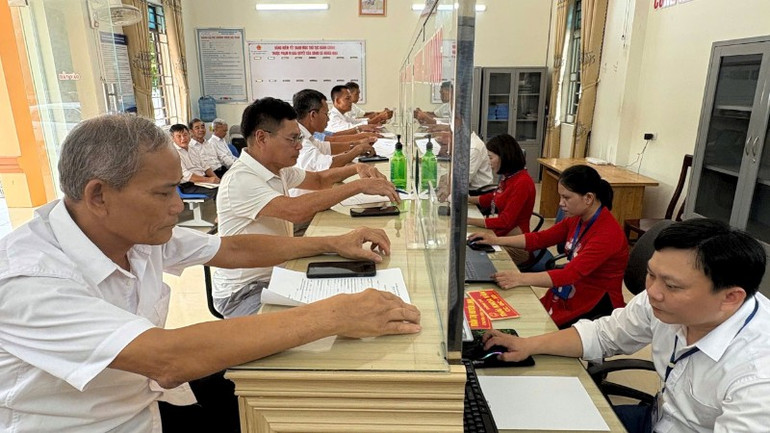
After one month of implementation, the two-level local government model is now operating stably and effectively.
The electronic Civil Status system operates slowly, and at times cannot be accessed, affecting the receipt and processing of records; although records are processed and results are issued on the Civil Status system, when the electronic one-stop shop retrieves them, the Civil Status system still reports that the records are not complete, leading to the inability to retrieve the results to return to the people. Some records have errors during the process of sending from the electronic one-stop shop system to the Civil Status system, causing interruptions in the processing process and requiring manual processing, affecting progress and transparency...
The foundation for the effective operation of two-level local governments is the smoothness of the technology infrastructure system. Functional units need to be more urgent in directing relevant ministries and branches to propose a comprehensive plan on this content. It is necessary to promptly deploy synchronous databases, review, evaluate, ensure the infrastructure and software functions of the National Public Service Portal to meet the increasing access requirements and handle administrative procedures for people more conveniently...
Source: https://nhandan.vn/hoan-thien-to-chuc-bo-may-va-hoat-dong-cua-chinh-quyen-cap-xa-post897126.html



![[Photo] General Secretary To Lam, Secretary of the Central Military Commission attends the 12th Party Congress of the Army](https://vphoto.vietnam.vn/thumb/1200x675/vietnam/resource/IMAGE/2025/9/30/9b63aaa37ddb472ead84e3870a8ae825)
![[Photo] President Luong Cuong receives President of the Cuban National Assembly Esteban Lazo Hernandez](https://vphoto.vietnam.vn/thumb/1200x675/vietnam/resource/IMAGE/2025/9/30/4d38932911c24f6ea1936252bd5427fa)
![[Photo] Solemn opening of the 12th Military Party Congress for the 2025-2030 term](https://vphoto.vietnam.vn/thumb/1200x675/vietnam/resource/IMAGE/2025/9/30/2cd383b3130d41a1a4b5ace0d5eb989d)
![[Photo] Panorama of the cable-stayed bridge, the final bottleneck of the Ben Luc-Long Thanh expressway](https://vphoto.vietnam.vn/thumb/1200x675/vietnam/resource/IMAGE/2025/9/30/391fdf21025541d6b2f092e49a17243f)
![[Photo] The 1st Congress of Phu Tho Provincial Party Committee, term 2025-2030](https://vphoto.vietnam.vn/thumb/1200x675/vietnam/resource/IMAGE/2025/9/30/1507da06216649bba8a1ce6251816820)


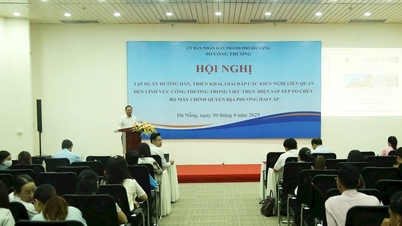

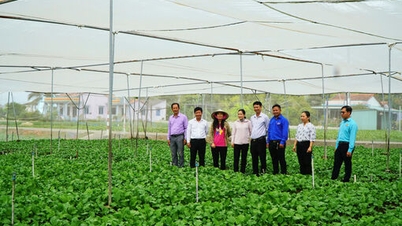



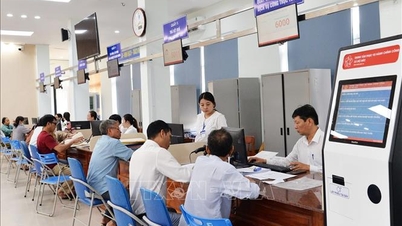




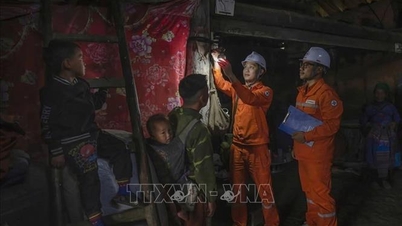
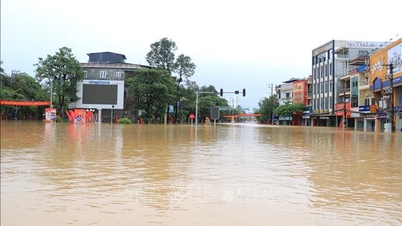


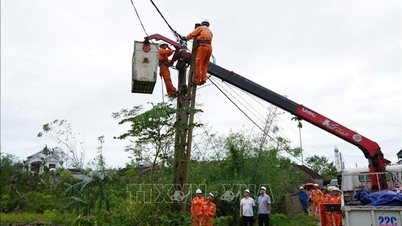




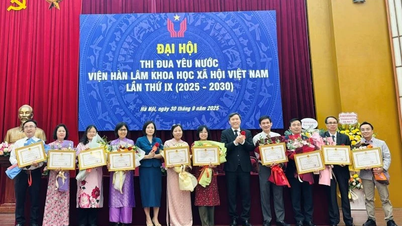
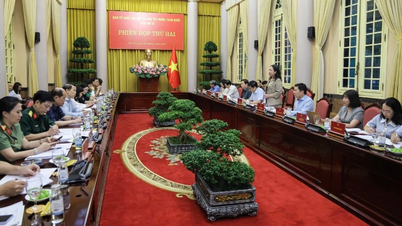
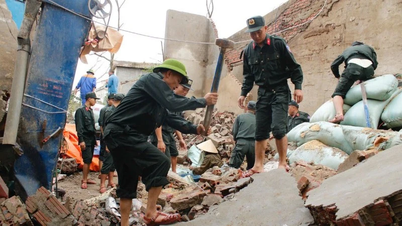


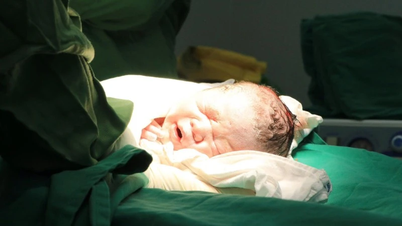




































































Comment (0)